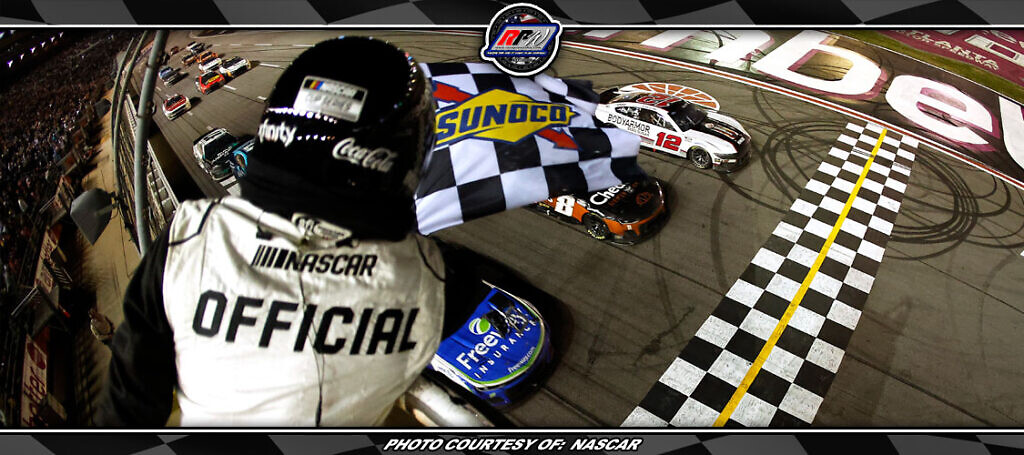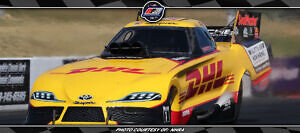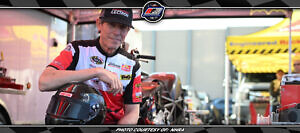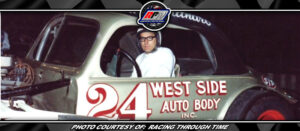
Column By: REID SPENCER / NASCAR – HAMPTON, GA – The collective gasp in the Atlanta Motor Speedway press box was clearly audible when Austin Cindric took the field four-wide on Sunday.
With Michael McDowell, Martin Truex Jr. and Chase Briscoe running side-by-side at the front of the field, Cindric steered his No. 2 Team Penske Ford to the bottom of the track as the cars approached Turn 1.
Squeezing through a hole between McDowell’s Ford and the white “out-of-bounds” lines between the apron and the racing surface at the 1.54-mile track, Cindric took the lead with 50 laps left.
Following Cindric into the corner, Kyle Busch kept the field four-wide into Turn 2, and when Busch cleared McDowell, Todd Gilliand took his place at the exit from the turn.
“It must have looked as cool as it felt,” Cindric said after the race. “You don’t get runs like that too often and be able to take ‘em and do something with ‘em.
“But I was pretty confident I was going to get clear before the corner and stay above the double white line. Yeah, it was cool.”
Cindric’s pass for the lead wasn’t an isolated incident. The Ambetter Health 400 featured unabated action throughout the race.
Appropriately, it ended with the closest finish among three cars in motorsports history, with Daniel Suarez taking the checkered flag 0.003 seconds ahead of runner-up Ryan Blaney and 0.007 seconds clear of third-place Busch.
What enhanced the excitement of this particular race was the relative instability of the cars in traffic.
“We were not comfortable,” Suarez said in his post-race press conference. “I don’t think there were many cars going wide-open besides the front row cars… It was not easy, not easy at all.
“This race track is fairly new, and it already has some bumps, so it wasn’t easy. But it was great racing—it was great racing.”
Gilliand, who led a race-high 58 laps before a flat tire ruined his chances, put it more succinctly in a radio transmission reported by Jeff Gluck of The Athletic.
“It’s like going to a haunted house, you know?” Gilliland said. “It’s fun, but I’m scared for my life at the same time.”
A repaving project after the summer race of 2021 made the character of Sunday’s race possible. Before the resurfacing, Atlanta had the oldest, most degraded asphalt on the NASCAR Cup Series circuit.
The drivers loved the old pavement and initially decried the transformation of the speedway into a narrower track with higher banking in the corners, a track which now can accommodate the superspeedway competition package previously reserved for Daytona and Talladega.
It was the reconfiguration, however, that helped to create one of the most compelling events in recent memory.
For the first time in Cup Series history, the season began with back-to-back superspeedway races. In the DAYTONA 500, William Byron was inches ahead of Hendrick Motorsports teammate Alex Bowman when caution slowed the race—after Byron had taken the white flag.
Six days later, the Atlanta race ended in a photo finish, engendering great expectations for NASCAR’s return to the track on Sept. 8 for the first race of the Cup Playoffs.
It also created a temptation. If the Atlanta event earned overwhelming praise for the quality of its racing action, why not try the combination at other intermediate tracks?
That’s not a good idea, says Byron, even though the driver of the No. 24 Chevrolet has won twice at both Daytona and Atlanta.
“You take something that’s good in the sport, and you oversaturate it,” Byron said. “I feel like we’ve been down that path. We can’t oversaturate something that’s a niche, a unique thing that looks really great.
“I just think it’s in our best interest to have unique challenges each week, and that one is—Atlanta’s a great challenge. I love going there, but I don’t want that every week.”
Just as trips to a haunted house can lose their impact through repetition, the transformation of additional intermediate tracks into superspeedways would alter the balance of the sport—and haunt the balance sheets of team owners tasked with replacing wrecked race cars.








